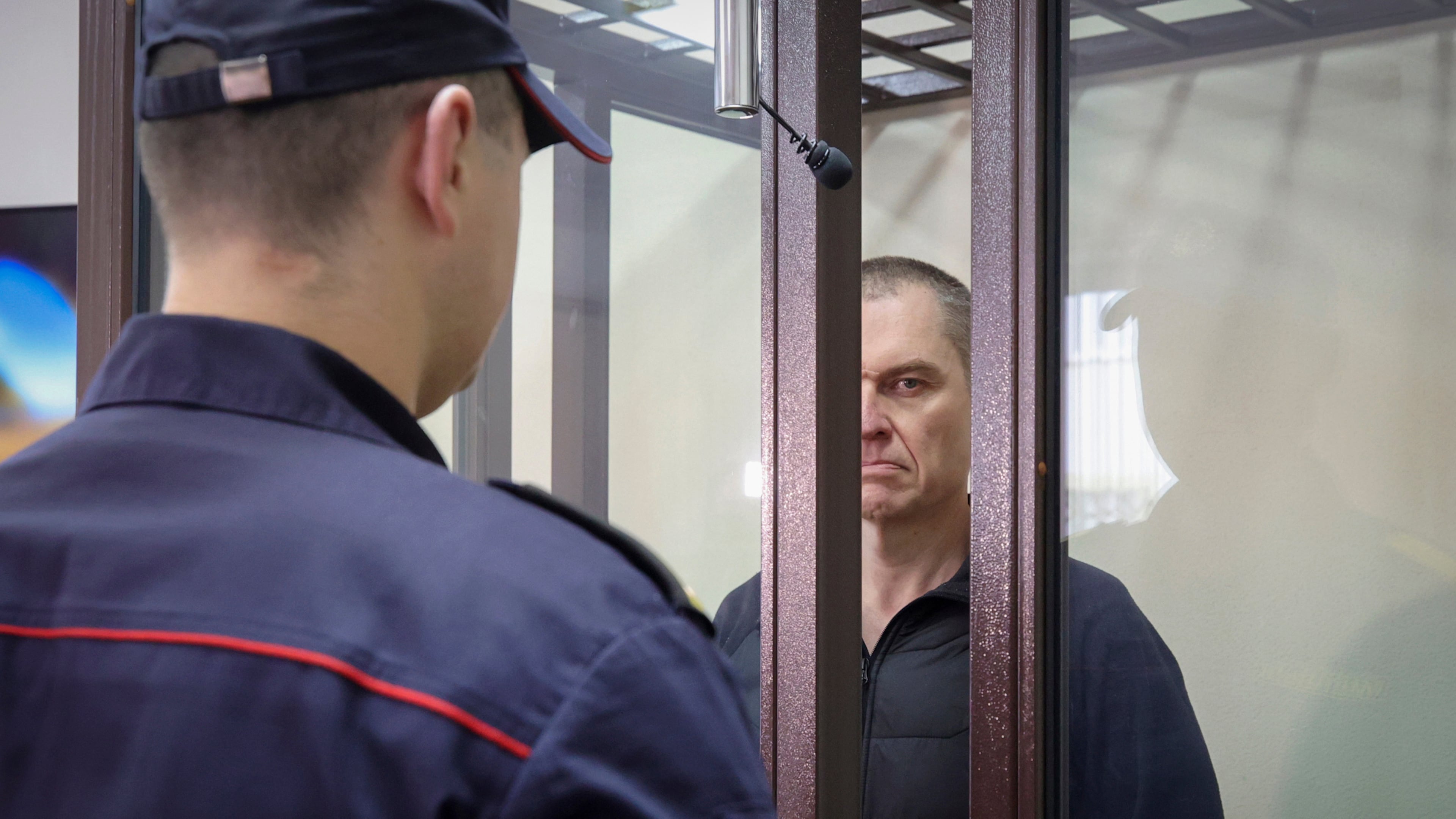Journalists imprisoned in Belarus and Georgia win EU's top human rights award

BRUSSELS (AP) — Two journalists, one imprisoned in Belarus and the other in Georgia, have won the European Union’s top human rights honor, the Sakharov Prize, European Parliament President Roberta Metsola announced on Wednesday.
Andrzej Poczobut is a correspondent for the influential Polish newspaper Gazeta Wyborcza. He was convicted of “harming Belarus’ national security” and sentenced to eight years, which he is serving in the Novopolotsk penal colony.
Mzia Amaghlobeli, a prominent journalist who founded two of Georgia’s independent media outlets, was in August convicted of slapping a police chief during an anti-government protest. She was sentenced to two years in prison in a case that was condemned by rights groups as an attempt to curb media freedom.
“Both are journalists currently in prison on trumped up charges simply for doing their work and for speaking out against injustice. Their courage has made them symbols of the struggle for freedom and democracy,” Metsola said at the parliament in Strasbourg, France.
The annual EU award, named after Soviet dissident Nobel Peace Prize laureate Andrei Sakharov, was created in 1988 to honor individuals or groups who defend human rights and basic freedoms.
The winner is chosen by senior EU lawmakers from among candidates nominated by the European Parliament’s various political groups. The assembly says the award is “the highest tribute paid by the European Union to human rights work.”
Belarus opposition leader Sviatlana Tsikhanouskaya told the lawmakers that awarding it to Poczobut and “fearless” Amaghlobeli this year “sends a strong message to all political prisoners that you are not alone and journalism is not a crime.”
She and her husband Siarhei Tsikhanouski, who both made speeches to the assembly, along with others opposed to the regime of President Alexander Lukashenko, won the Sakharov Prize in 2020.
Poczobut, 52, suffers from a serious heart condition and was placed in solitary confinement several times, sometimes for stretches of up to six months, human rights activists have said.
His newspaper said it hoped that the award “will be a pebble that will trigger an avalanche of events. That it will lead to the imminent release of our Belarusian correspondent. Andrzej’s fate has finally ceased to be a game between Lukashenko’s special services and Poland. It is a matter for the whole of Europe.”
Lukashenko, nicknamed “Europe’s last dictator,” has ruled Belarus for over three decades, maintaining his grip on power through elections dismissed by the West as neither free nor fair and violent crackdowns on dissent.
Following the 2020 protests that saw hundreds of thousands take to the streets, more than 65,000 people were arrested, thousands were beaten, and hundreds of independent media outlets and nongovernmental organizations were closed and outlawed.
Lukashenko pardoned 52 prisoners after a phone call in August with U.S. President Donald Trump that sparked speculation of a possible thaw in relations. The release came as the Trump administration sought to improve communications with Russian President Vladimir Putin.
Amaghlobeli's case is just one of many to draw protests and international criticism in Georgia in recent months as the ruling Georgian Dream party has been accused of eroding civil society and democratic rights in the South Caucasus nation.
During her trial, she urged the opposition to keep fighting. “You must never lose faith in your own capabilities. There is still time. The fight continues— until victory!” she said.
Amaghlobeli is the founder and manager of investigative news outlet Batumelebi, which covers politics, corruption and human rights in Georgia. She also founded its sister publication, Netgazeti.
Georgia has seen widespread political unrest and protests since last year’s parliamentary election in which Georgian Dream retained its control of the parliament. Protesters and the country’s opposition declared the result illegitimate amid allegations of vote-rigging aided by Russia.
Several Sakharov laureates, including Nelson Mandela, Malala Yousafzai, Denis Mukwege and Nadia Murad, went on to win the Nobel Peace Prize. Venezuelan opposition leader María Corina Machado, who won the Nobel Peace Prize earlier this month, picked up the Sakharov last year.
The award, which comes with a 50,000 euro ($58,000) endowment, will be presented in a ceremony at the European Parliament in Strasbourg in December.

